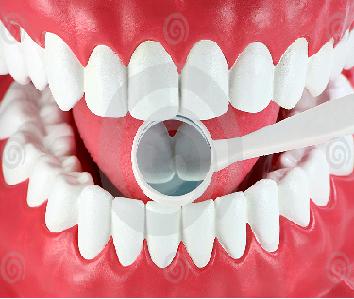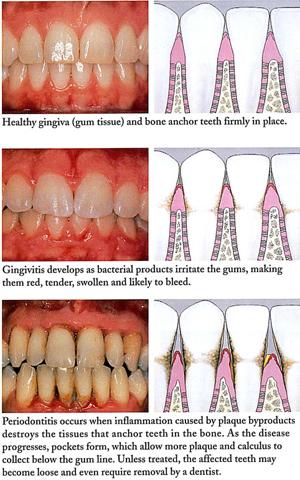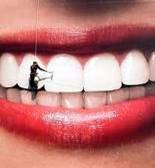Dental health and dental beauty are synonymous with self-confidence, success and happiness. An uneven, discolored and diseased set of teeth can not only dent the outward appearance of a person, but can also bring in lack of self-belief, pain and dejection in its wake. Therefore, it is imperative to cultivate a good oral dental health regimen, which includes regular and proper cleanups, timely checkups etc to prevent any chance of any irregularity appearing.

Consultation
The first appointment of a consultation / examination is a very important process before initiating any dental procedure. After a thorough evaluation of your oral health, the doctors at Swastik Dental Clinic would explain the same to you and formulate an ideal treatment plan for your case. The time required for the completion of the treatment and the exact fee estimate would be clarified during this appointment.
Various alternative treatment plans would be given to you as well to suit your budget and time constraints if any. All your doubts and queries would be solved by the doctor at this stage and this first appointment serves as a platform for a healthy doctor – patient relationship.
After this appointment, you can choose to proceed with the further treatment only if you feel comfortable as there are no obligations for the same. Only a one time consultation fee would be charged.

Scaling (Cleaning) of Teeth
Do you know that 98% of India’s adult population suffers from gum disease in one form or the other? Yes, this is a fact & root cause of every gum disease is the bacterial plaque which when not removed properly hardens to form calculus. The more calculus you have, the more your gums and bone underneath recede from the teeth leaving them weak.
Bacterial plaque is the root cause of most dental problems. If neglected, bacterial plaque attacks your gums, leading to inflammation and bleeding. This condition is called gingivitis. Bleeding gums are a warning that plaque is weakening the tissue between your gums & teeth & the bone supporting your teeth.
Bacterial plaque that is not removed begins absorbing your salivary salts, particularly calcium & phosphate and hardens to form tartar/calculus. When calculus settles between your gums & teeth, it forces your gums to recede from your teeth exposing the roots. This
make your nerves vulnerable to extremes of temperature and /or sweet and sour food. The bone also recedes in the same fashion as gums, which causes mobility of teeth & ultimately leads to tooth loss.
To summarize, it is the presence of deposits that leads to weakening of teeth and not the process of removing the deposits. In certain cases if the deposits are removed too late, at a stage when most of the bone is lost and teeth are temporarily cemented together with hard calculus, tooth may move after scaling. Hence scaling does not make teeth loose, they have already become loose due to calculus. Only the removal of patch of calculus has set in the mobility. This happens at a very late stage.
Scaling if done at a proper time i.e. every six months to remove calculus, the cycle of gum disease is broken & the onset of gum disease is prevented.
REST ASSURED, SCALING WILL NOT WEAKEN YOUR TEETH RATHER IT WILL MAKE THEM STRONGER.
Painless Root Canal Treatment (RCT)
RCT facts: Amongst a whole host of dental remedies, if there's one that people are most injudicious and ill advised about, it has to be the infamous Root Canal Treatment (RCT). In fact, time and again, it is discussed synonymously with pain. How very incorrect! Your RCT, as it is commonly called, may be a one sitting procedure & may turn out to be 100 per cent painless; chances are you might even enjoy the whole procedure!
When do you need an RCT? A root canal treatment is generally indicated when
i) There has been trauma to tooth as in an injury, fall or accident where tooth is fractured or discolored.
ii) There is a large decay in the tooth extending to the roots causing recurring pain / swelling or both.
iii) There is an opening in the gums, which drains pus through a sinus tract that leads to an abscess surrounding the roots.
iv) Cavities extend very close to the nerve extreme pain.
 What exactly is done?
What exactly is done?
The procedure begins with an intra-oral X-ray. After injecting local anesthesia to the tooth, access is gained to the nerve area by a dental drill. Cleaning the tooth out to remove bacteria, degenerated nerve and debris is then done using RC files. The tooth is periodically flushed with saline or water. Once the tooth has been thoroughly cleaned, the interior is sealed by placing a root canal filling material either the same day or subsequently. The Gutta-percha cones are placed into the root canal (coated with a sealer) exactly to the tip of tooth; length is confirmed with an x-ray, if required. The crown of tooth is then filled with filling, which seals tooth from above.
However, with recent advances in dentistry, root canal treatment has not only painless, but also requires minimum appointments. In some case, it Single Sitting Root Canal.





 What exactly is done?
What exactly is done? 

